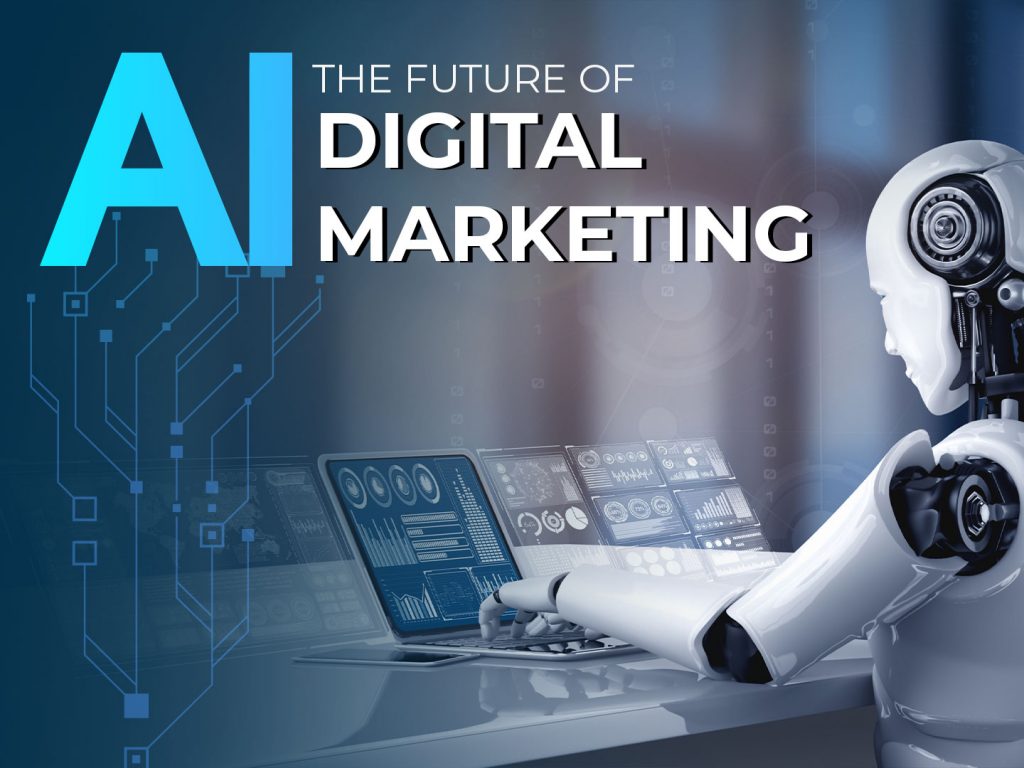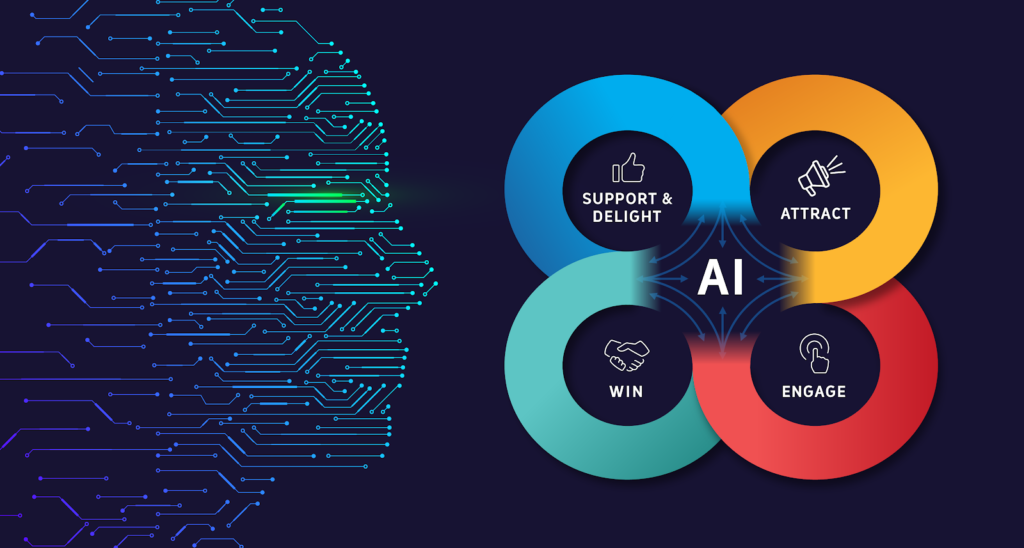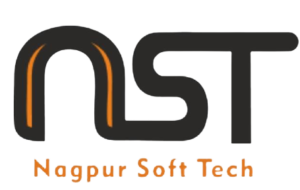
AI in Digital Marketing: The Future of Advertising
There is much pressure on companies in today’s digital landscape to communicate with their customer base in new and exciting ways. Further in the current tactical marketing techniques are not enough to respond to the growing demands for target, instant, and analytical marketing. So this is where we apply AI in digital marketing.
Similarly, AI has transformed marketing in organizations by making several functions automated or personalized to suit the customer’s preferences and insight-hungry data systems and analyses.
Besides that in today’s highly competitive world, firms will benefit from using AI in digital marketing. Also, this technology will allow them to explore its uses, advantages, and applications.
What is AI in Digital Marketing?
In truth this is a major move away from just creating schedules on a social media platform or displaying content.
So that has already been filtered and marketers obtain the customer’s information and use it to determine.
And what he is likely to do, allowing them to subsequently employ strategies. So interacting in this way may be what makes the interactions go up and convert.

Top Uses of AI in Digital Marketing
Marketers extensively use AI in digital marketing to adapt marketing strategies and interact with customers. Here are some of the most important applications:
1. Personalization at Scale
In digital marketing, businesses effectively use AI to deliver custom content personally to their audience.
Conversely, customer behavior, such as past site visits, purchases, and social media activity, is used by AI algorithms to personalize recommendations, newsletters, and site content.
Another is Amazon uses AI to deliver search results based on past searches and purchase history.
So that this makes the buying process easier for us and enhances our satisfaction by providing related content.
In conclusion, individuals’ behavior and interests are targeted by AI to enhance the effectiveness of advertisements, ensuring better utilization of advertising spend.
2. Predictive Analytics and Customer Insights
In addition, Artificial intelligence justifies historical statistical presumptions with its prediction and development of customer data.
Also, predictive analytics, fueled by AI, make this possible. Hence a given customer’s interest in specific products or services can be foreseen, and consequently, resource allocation in the business can be upgraded accordingly.
For example, A customer’s past purchasing behavior and preferences can be analyzed by AI to predict when they are likely to place another order or what product they might be interested in buying.
However this way, businesses target ads more precisely, getting the right value proposition at the right time. In addition, AI helps marketers determine the optimal pricing, inventory levels, and even supply chain decisions.
3. AI-Powered Chatbots and Conversational Marketing
Customer service has changed and modified in the important aspect of digital marketing.
Conversely, customer service brands can change the way they interact with their clients by using artificially intelligent chatbots. In conclusion, virtual assistants will instantly answer customers’ queries using natural language processing (NLP) and machine learning technology.
Furthermore, AI chatbots can help customers solve their problems at any point in time with AI-based product handling assistance, routine and frequently asked questions and answers, and problem-solving mechanisms not require any manual intervention.
Also, companies can quickly reply to inquiries, reduce reaction time, and thereby improve customer satisfaction levels.
Moreover, it can get some critical information regarding the customer’s interests that helps in developing marketing goals and objectives even further.
4. Programmatic Advertising and Dynamic Ad Targeting
Similarly, Programmatic advertising is maximized by machine learning through the use of automation techniques to streamline the ad-buying process.
Also, users’ data is used in real-time by advertisers and buyers through artificial intelligence for programmatic advertising to place and buy ads.
While the AI model analyzes audience behavior to decide when, where, and in what format to display ads.
User behavior, demographics, and preferences are applied by dynamic ad targeting in programmatic advertising to take it further.
For example, if a user searches for a specific product on an e-commerce site.
AI can display related products across other platforms.
User data is processed and adapted by AI to achieve this level of personalization, enhancing targeted advertising.
5. AI in Email Marketing
Corporations have transformed email marketing by enabling their emails to become more unique and interesting.
Users’ interests are catered to by AI as it sorts recipient lists and sends emails with relevant content. The system can determine the best time to send the message, optimize subject lines, and choose content to boost open rates.
An AI learns from past user interactions to increase the chances of conversion by engaging with relevant content.
When a customer opens promotional emails about a specific product category, the AI system responds by recommending customized offers or discounts on similar products.
6. Voice Search Optimization
Digital marketing businesses are focusing on voice search optimization using AI as the popularity of voice-activated assistants like Amazon Alexa, Google Assistant, and Apple Siri continues to grow.
Business AI optimizes voice queries to be longer, more conversational and used instead of text-based searches.
Voice search optimization tools, powered by AI, analyze data from voice searches, identify recurring queries, and determine relevant keywords.
Businesses can increase their chances of ranking for voice commands and ensure that voice queries return accurate answers by optimizing their content. Businesses can integrate AI into their digital marketing to remain competitive and capitalize on growing their niche.
Benefits of AI in Digital Marketing
Introducing AI in digital marketing has opened its doors to much higher contributions to business.
1. Better Customer Experience
Artificial intelligence transforms how businesses process, analyze, and use data to recognize behavioral patterns, helping create a more customized consumer experience.
This approach leads to longer engagement and greater customer satisfaction.
2. Efficiency and Automation
Automation has freed marketers from many workloads associated with data analytics, content creation, ad optimization, and so forth to provide more strategic opportunities for marketing.
Automation also ensures that marketing campaigns run with minimal intervention or human interference, thus improving efficiency.
3. Effective Decisions
AI helps businesses gain insights about data to make wise decisions.
Predicting trends, optimizing marketing strategies, and identifying the most suitable target audience will enable a business to allocate resources effectively and achieve a more efficient output.
4. Cost savings
AI-enabled marketing optimization enables corporations to maximize economic efficiency and reduce expenses from ads.
Marketing is becoming efficient, and therefore, marketers are fulfilling many of their goals.
AI ensures that the targeting for the audience is accurate, allowing business organizations to serve their content according to their available budget.
Therefore, this method turns potential clients into permanent customers by achieving better conversion rates.
5. Competitive Advantage
Artificial intelligence will revolutionize digital marketing dynamics. Companies can acquire technologies that compete at the current market trend level.
With the use of advanced analytics, automation, and digital enablement, marketing can create more quality campaigns.
Achieving to making a business perform better and customers happy is accomplished.
Integrating AI into Your Digital Marketing Plan
1. Choose the best tools of AI.
An organization needs to pick the right tools and channels that can deliver to specific objectives to get the best out of artificial intelligence in the context of digital marketing.
AI solutions implement a wide array of marketing tasks, including content creation, social media management, customer preference prediction, and segmentation.
2. Focus on Data Quality
Businesses must ensure that they use relevant, valid, and current data in their data-driven applications.
New data enhances AI algorithms’ ability to make accurate predictions, making them more useful to the business.
AI-driven decisions with quality data enable businesses to take actionable steps to improve outcomes and enhance strategic planning.
High-quality data investments will provide the most effective tools for achieving benefits in AI for digital marketing.
3. Test and Iterate
The marketer can constantly test and experiment with slightly viewable marketing campaigns using AI.
Marketers experiment with mixed approaches, using insights and error processes to make efforts toward AI-based marketing.
4. Ethical Considerations on AI Practices
Companies should focus on integrating ethically the AI and digital marketing in their business strategy.
AI will earn customers’ trust by making decisions transparently, protecting data, and ensuring fairness.
Businesses use ethical codes when employing AI in digital marketing to maintain trust with customers and establish long-term relationships.
Conclusion
Innovative digital marketing is currently shaping the relationships between businesses and customers, transforming from a future technological advancement into a reality.
We can achieve efficiency, enhance customer experience, and gain valuable insights for making marketing decisions by using AI technology.
Companies are using AI as an essential part of their marketing strategies in today’s rapidly changing world. We are making digital marketing the next big thing and staying relevant in an increasingly crowded market. AI businesses will better satisfy customers’ needs, enabling them to stay ahead of the curve and ensure their long-term growth and prosperity. In the changing digital future, businesses will use AI to keep pace with the competition.
